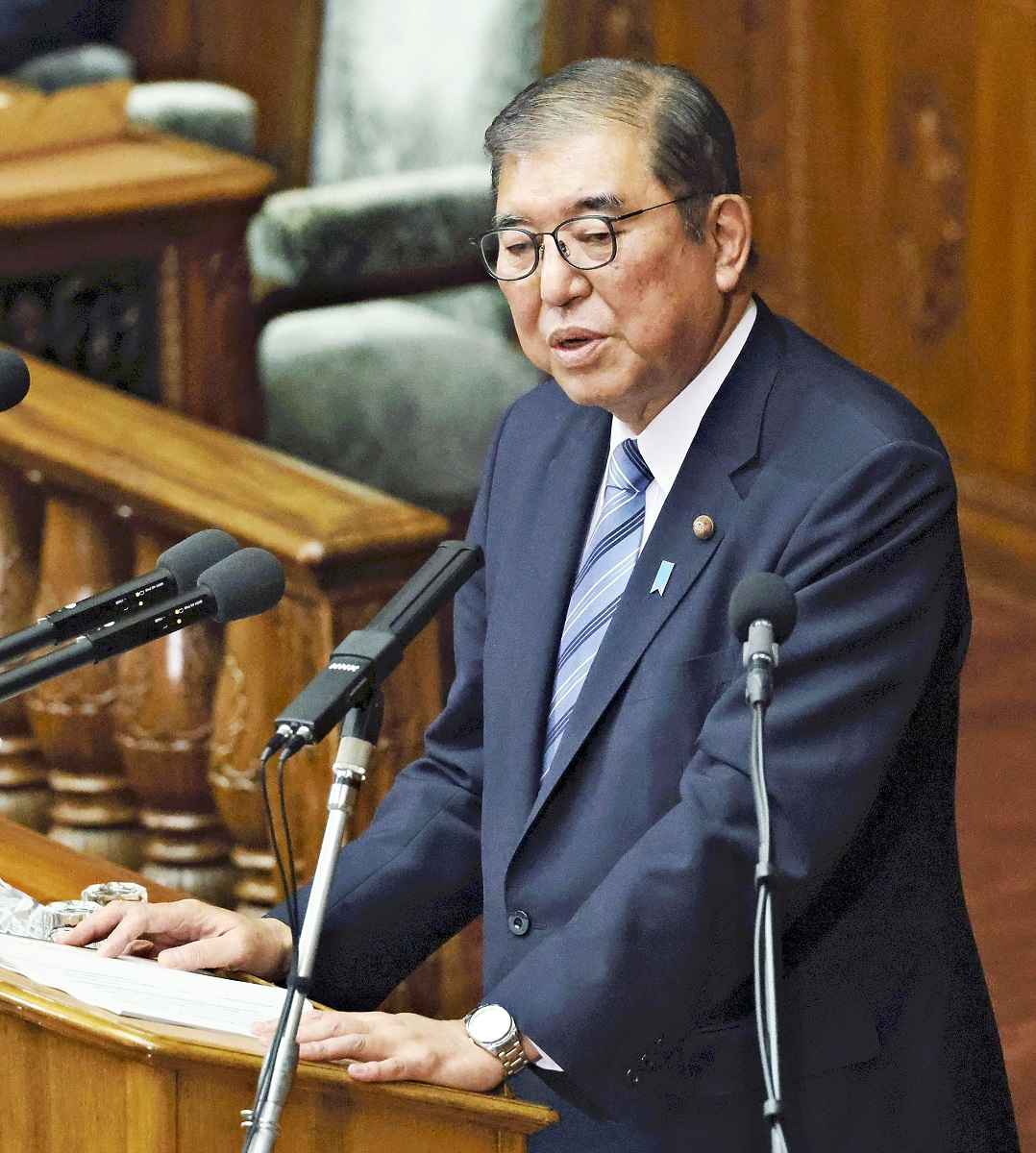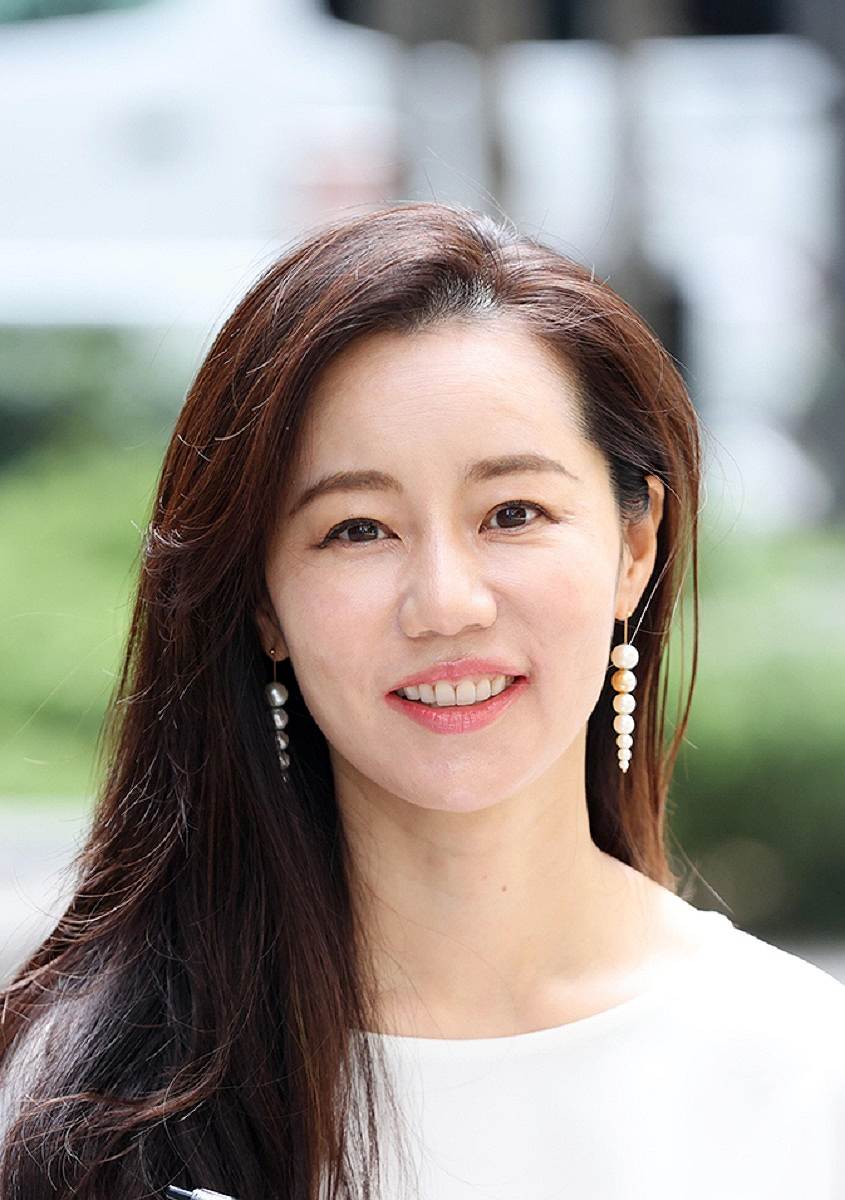China Will Benefit If Ishiba’s Ideals Strain U.S. Ties; No Longer On The Sidelines, PM Must Learn Realism

Prime Minister Shigeru Ishiba gives a policy speech at a plenary session of the House of Representatives on Nov. 29.
8:00 JST, December 14, 2024
Shigeru Ishiba, whose Liberal Democratic Party suffered a disastrous defeat in the October general election, losing its majority in the House of Representatives, remains in his posts as LDP leader and prime minister of Japan.
On Nov. 29, the embattled prime minister delivered a policy speech to the Diet outlining the policy agendas of his flailing Cabinet. In his remarks, Ishiba cited a 1957 policy speech by then Prime Minister Tanzan Ishibashi, ostensibly to help frame his key point.
Journalist-turned-politician Ishibashi had said: “As a main principle of our national policy, we will institute the practice of exchanging views in a straightforward manner at all times and work together while also clearly stating our individual stances. We must endeavor to keep pace with global progress while engaging in this ready cooperation.”
Ishibashi, who became prime minister after World War II, had been an outspoken critic of Japanese expansionism during the war, even advocating the abandonment of colonies such as Manchuria, Korea and Taiwan. His foreign policy was known by the slogan “small Japan,” and his goal was to establish the country as a peaceful trading nation rather than a military power.
Prime Minister Ishiba is known to highly respect Ishibashi. In a new book published this August, Ishiba referred to Ishibashi’s foreign policy and claimed that diplomacy in which one side gains and the other side loses cannot last.
The following passage from Ishiba’s recent speech underscores how the new prime minister’s thinking on foreign policy aligns with that of his 1950s predecessor:
“Naturally, the United States has its own national interests, just as Japan has its own. Therefore, I believe that by exchanging views candidly and mutually enhancing the national interests of both countries, we can contribute to the realization of a free and open Indo-Pacific. I look forward to holding candid discussions with President-elect [Donald] Trump and elevating our alliance to even greater heights.”
In his speech, Ishiba did not mention the idea of creating an Asian version of NATO, which has been criticized both at home and abroad. However, he did express his willingness to revise the Japan-U.S. Status of Forces Agreement (SOFA), which has been maintained since 1960, stating that he would work to resolve the various problems associated with the stationing of U.S. troops in Japan.
Ishiba may be viewed as a foreign policy hawk by many international observers, as he served as defense minister and has been outspoken on foreign affairs and security issues. However, simply presenting him as a hawk may be misguided. Ishiba’s thinking on foreign policy is in fact quite unique within the LDP.
Under the Japan-U.S. Security Treaty, a large number of U.S. troops are stationed in Japan. Most of them are in Okinawa Prefecture for geopolitical reasons. Revising the SOFA to reduce the burden on Okinawa is a policy that has been vociferously advocated by Japan’s liberal-leaning opposition parties but not clearly by the LDP.
So, why does Ishiba hold policies advocated by the opposition parties?
An explanation for this paradox perhaps lies in Japanese domestic politics. During the years that Prime Minister Shinzo Abe — a powerful conservative leader who was fully aware of the problems of communist China’s ambition and hegemony — advocated a “free and open Indo-Pacific,” Ishiba was Abe’s biggest intraparty rival. During Abe’s long tenure, Ishiba worked tirelessly, and publicly, to present himself as a political contrast to Abe’s policies. Consequently, he gained popularity among many segments of the general population, including opposition supporters, who were critical of Abe’s conservative policies. In a manner of speaking, Ishiba was leading an active opposition party within the LDP.
It is not appropriate for Ishiba to still regard the Japan-U.S. alliance as “unilateral,” and to think that it should become “equal” through revision of the SOFA. Over the past 10 years, when Abe and his successors were prime ministers, the Japan-U.S. alliance deepened, and substantive equality increased. Japanese leaders have been strengthening the Japan-U.S. alliance by making Japan’s Self-Defense Forces more active. Ishiba’s thinking diverges from this direction. Since Ishiba spent a decade in opposition within the party, his awareness of current security issues seems to have not kept up with the times. In fact, a former senior U.S. government official who spoke with me dismissed Ishiba’s foreign and security policies as “out of date.”
To be sure, the Japanese in general view the current SOFA as an issue. In response to calls to reform it, the LDP included the idea that the SOFA should be revised in its election pledges, while using vague expressions such as making the SOFA “what it should be.”
The agreement grants legal privileges to U.S. forces operating in Japan, and the Japanese government does not control the bases. As a result, Japanese police were barred from the crash site when a U.S. military helicopter crashed into a college in Okinawa in 2004. It’s worth noting that Ishiba was then director general of the Defense Agency, which ostensibly deepened his awareness of the issue.
Ishiba recently questioned whether Japan should be genuinely called “a sovereign nation,” and in October he presented a proposal in the Diet to station SDF troops in the United States, arguing that the revision of the SOFA was intended to enhance the sustainability of the Japan-U.S. alliance.
However, Washington has been consistently reluctant to revise the SOFA. Successive LDP administrations have been aware of the problem but have exercised restraint regarding formal suggestions to revise the SOFA to Washington. Prime Minister Fumio Kishida, who was also seen as an idealist, publicly rejected the idea of formal suggestion. To explain why, he said, “It is important for Japan and the United States to communicate with each other and deal with the issue in a realistic manner.”
To be clear, discussion of this agreement would be a Pandora’s box for the Japan-U.S. alliance.
One cannot forget the serious damage done to the Japan-U.S. alliance in 2009 by the Cabinet of Prime Minister Yukio Hatoyama of the Democratic Party of Japan, which tried to take a new path on policies regarding Okinawa.
Who will receive the most benefit if the U.S.-Japan alliance is damaged? Of course, China.
Interestingly, China has welcomed Ishiba, and President Xi Jinping, who met with Ishiba for the first time in Peru in November, quoted Prime Minister Kakuei Tanaka, who achieved normalization of diplomatic relations with China in 1972, in calling for improved relations between the two countries. Ishiba once studied under Tanaka.
While wary of Ishiba’s approach on the issue of Taiwan, Beijing is relieved that he has distinguished himself from Abe by refraining from visiting Yasukuni Shrine and on the issue of Japan’s recognition of the history of its invasion of China. The Global Times, a Chinese Communist Party media outlet, opined that although Ishiba belongs to the conservative camp, his policy positions are relatively “balanced and moderate.”
Okinawa, strategically located along the so-called first island chain, could become the front line for cooperation between the U.S. military and the SDF if a Taiwan contingency occurs and the U.S.-Japan alliance gets involved.
Now that Ishiba is prime minister, he should set aside his idealistic policies and explore strengthening the Japan-U.S. alliance in more realistic ways that can also be accepted by the Japanese public. It is admirable for a politician to have ideals. However, when it comes to leading a country, the ability of a politician is truly tested when they must reconcile their ideals with reality. It seems that Ishiba’s words and actions from his past as a bystander to real politics are now haunting him.
Ishiba should not fall into China’s trap by creating discord in the Japan-U.S. alliance himself. The prime minister, no longer on the sidelines, must remember that a strong Japan-U.S. alliance is the greatest deterrence against China, given the severe security environment surrounding Japan in East Asia.
Political Pulse appears every Saturday.

Yuko Mukai
Mukai is a Washington correspondent of The Yomiuri Shimbun.
Top Articles in Editorial & Columns
-

Riku-Ryu Pair Wins Gold Medal: Their Strong Bond Leads to Major Comeback Victory
-

40 Million Foreign Visitors to Japan: Urgent Measures Should Be Implemented to Tackle Overtourism
-

China Provoked Takaichi into Risky Move of Dissolving House of Representatives, But It’s a Gamble She Just Might Win
-

University of Tokyo Professor Arrested: Serious Lack of Ethical Sense, Failure of Institutional Governance
-

Policy Measures on Foreign Nationals: How Should Stricter Regulations and Coexistence Be Balanced?
JN ACCESS RANKING
-

Japan PM Takaichi’s Cabinet Resigns en Masse
-

Japan Institute to Use Domestic Commercial Optical Lattice Clock to Set Japan Standard Time
-

Israeli Ambassador to Japan Speaks about Japan’s Role in the Reconstruction of Gaza
-

Man Infected with Measles Reportedly Dined at Restaurant in Tokyo Station
-

Videos Plagiarized, Reposted with False Subtitles Claiming ‘Ryukyu Belongs to China’; Anti-China False Information Also Posted in Japan























